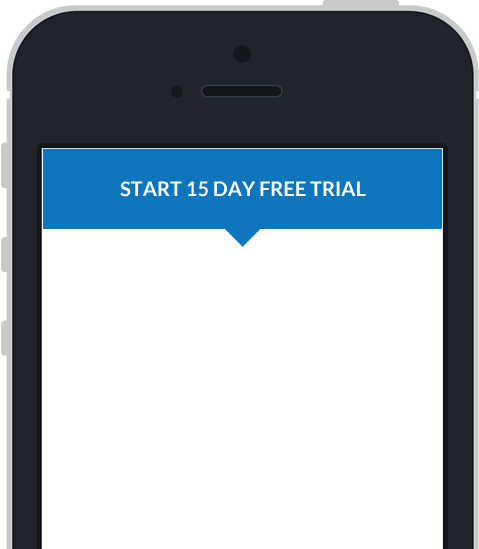This tutorial is for the new, online project designer. The tutorial for the Desktop Designer is available
here
.
Session List Options
Learn how the your projects can be configured to display sessions in different formats such as a list, a map
or a calendar.
What are Session List Options?
When a project is opened on a mobile device, the user will see a list of sessions that have been created for that project. The project can be configured to display these sessions in a different format by configuring the Session List Options tab in the project's properties. These options can be used to display the sessions on a map using GPS coordinates from each session or on a calendar using a datetime point and a duration.
Key Features
- Can be configured to display a map of sessions, plotting each session using a GPS point's coordinates.
- Can display a KML overlay on a map view to provide additional information on the map view.
- Can be configured to display sessions on a day or week calendar, by using a datetime and duration.

Configuration and Settings
A project's session list options can be configured in the Mobile Data Anywhere Designer to customise the way that the session list can be displayed on the mobile device. Below is an example of the properties window for a project, opened in the Mobile Data Anywhere Designer. The session list can be configured on the Session List Options tab.

Select point with GPS coordinates
To configure a project to display sessions on a map view, the project must contain a point that can be used to plot the coordinates of each session. The point must contain a value in the correct format in order for the session to be plotted on the map view. The required format is:
latitude,longitude
The simplest and quickest way to configure the map view is to use a GPS point that is configured to use the format:
%lat%,%long%
Once the point has been added to the project, the point will need to be selected as the point with the GPS coordinates, on the Session List Options tab.
Select KML / KMZ file
KML can be used to add custom geographic features to the maps that are displayed on the mobile app. To learn how to add KML to your projects, see the KML Mapping documentation .
Select point with start date and time
The project must contain a Date/Time point with a valid format. For example:
{year}-{month:2}-{day:2} {hour-24:2}:{minute:2}:{second:2}
When a session is created on the mobile device, this Date/Time point will be used to set the starting date and time for the session's calendar event.
Date format
This will be automatically set to the output format of the selected
Start Date/Time point
. It is recommended that this format be set to:
{year}-{month:2}-{day:2} {hour-24:2}:{minute:2}:{second:2}
.
Sample Projects
This sample simulates an auditing form which is used to collect information from sites that have been reported for discharging hazardous substances into the local environment. This project has been configured to allow sessions to be displayed using any of the view modes; list, map and calendar view.
Sample 1: Displaying Sessions on a Map
This sample demonstrates how to configure a project to display sessions on a map view. The project contains a GPS point, Incident Location , which has been configured to use the format %lat%,%long% . The project's Session List Options have been configured to use this point to plot each session on a map. A KMZ file has also been added to the project which will be used to display an overlay on the map view. The overlay contains several images which are used to display the words California and USA on the Northa American continent, as seen in the screenshot on the right.


On the mobile device, the user can view sessions on a map by selecting View As and then selecting Map View, as seen in the image below. This will display each of the sessions as a map marker, using the gps coordinates saved in each sessions Incident Location point. If a session does not have a value for the gps point, then it will not be displayed on the map view and the session will need to be edited from the list view.
Similar to the session list view, the user can open, edit, send, duplicate and delete sessions by selecting the session’s map marker. This view will display a summary of the session and the standard actions that are provided for a session.

Sample 2: Displaying Sessions on a Calendar
This sample demonstrates how to configure a project to display sessions on a calendar view. The project
contains a Date/Time point,
Date
, which has been configured to use the format
{year}-{month:2}-{day:2} {hour-24:2}:{minute:2}:{second:2}
. This point is used to determine the starting date and time for the calendar event, for each session that
is created in this project. The project also contains an Edit point which is used to determine the duration
of each session's calendar event.
On the mobile device, the user can view sessions on a calendar by selecting View As and then selecting Calendar View. The user can choose to display the sessions for a calendar week or day. If a session does not have values for Date or Time Taken then the session will not appear on the calendar view and will need to be edited from the session list view.
See below for an example of how sessions can be viewed on a calendar:

